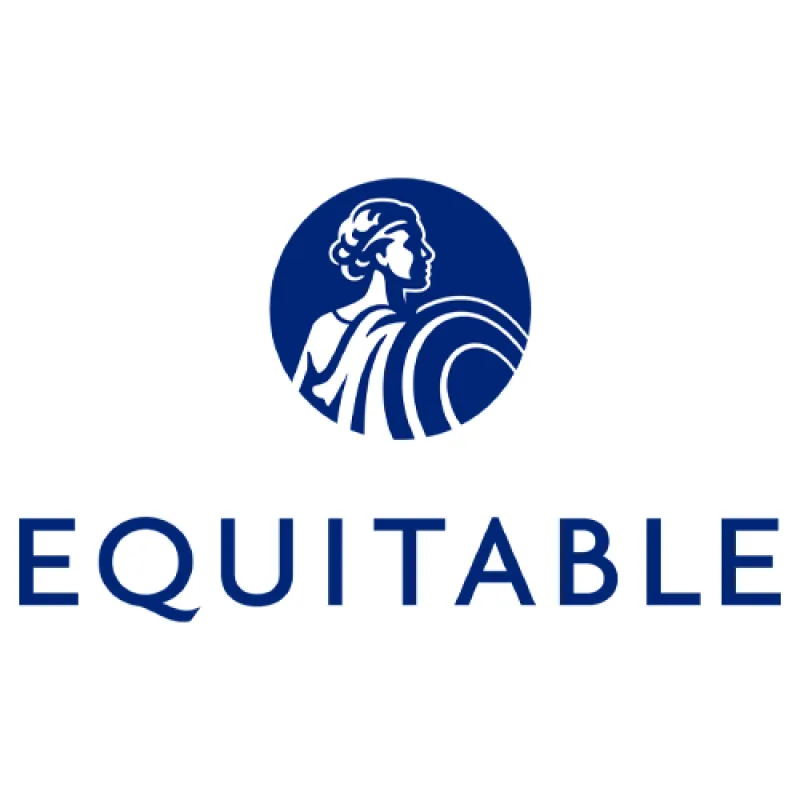
In general, a practice interview is a professional development opportunity for you to gain feedback on your interview skills and resume from Employers, Career Coaches, Alumni, and More! Take the next step in preparing yourself for an internship, scholarship, job interview or continuing your education. There are many different formats to a practice interview based on industry, type of interview and the person conducting the practice interview. Read about the types of practice interviews offered here at UNC Charlotte as well as other useful tips!

You can make an appointment with your Career Coach to gain feedback on your interview skills.
The Career Center offer practice interviews in person, virtually and via telephone. Please note what type of interview and any other relevant information in the comments section of your appointment request. Please send your resume to your career advisor if it is not in Hire-A-Niner and come dressed to impress.
Your career coach can also focus on a variety of industries and types of interviews.
Virtual Interview Tips
- Make sure that your technology is working properly. Test your internet connection, any programs you will need, and your web camera prior to your scheduled interview time. It is a good idea to check it the day before to ensure you have a day to fix any issues that may arise.
- Prepare your environment to look as professional as possible. Using a blank wall as your background is ideal, but if that is not possible, just use something that looks professional.
- Dress the same way you would for an interview that is in person. Avoid wearing bright colors or patterns, and extravagant jewelry.
- Body language is important. Sit up straight and look directly into the web camera. This will give the illusion that you are making eye contact with them. Avoid messing with the camera, slouching, and yawning during your interview.
Phone Interview Tips
- Keep your resume in clear view so it's at your fingertips when you need to answer questions.
- Have a pen and paper handy for note taking.
- Clear the room — evict the kids and the pets. Turn off the stereo and the TV. Close the door.
- Don't chew gum, eat, or drink.
- Keep a glass of water handy, in case you need to wet your mouth.
- Speak slowly and enunciate clearly.
- Use the person's title (Mr. or Ms. and their last name.) Only use their first name if they ask you to.
- Don't interrupt the interviewer.
- Take notes when possible on what questions came up.
- Remember your goal is to set up a face-to-face interview. At the end of your conversation, after you thank the interviewer, ask if it would be possible to meet in person.
All UNC Charlotte students and alumni can use Big Interview to conduct free, online practice interviews virtually. After submitting a video, Big Interview's robust AI tool will offer you immediate feedback on where you are with interview prep and will share tips and strategies for improvement.
Features and benefits of using Big Interview include:
- Convenience: You can practice online, any time of the day or night, from the comfort of your own room.
- Interview Questions Specific to your Field: You have the option of conducting an interview with questions that are specific to your future career field. Big Interview organizes practice interview questions by industry. This allows you to create your own practice interview related to Business, Education, Technology, Sciences, Healthcare, Communications, Art, Non-Profit, Social Services, Military, Recreation, and more.
- Interviewing Curriculum: Big Interview also offers videos to guide you through the interview process. Covering such topics as what questions to ask, how to prepare for an interview, how to stand out and more!
- Negotiating Your Salary: Nervous about after the interview and negotiating your salary? Big Interview has you covered with a video curriculum that takes you through the world of negotiating and how to come out with the best possible option.
- Getting Feedback: After you conduct a practice interview on Big Interview you will have a video of the entire interview that you can access later. You can send anyone (professors, family members, friends, mentors) the link to this video and ask for their feedback on your responses and nonverbal communication. You also have the option of reviewing the final video yourself and revisiting any of your responses to improve your performance. Send Your Video to Your Career Advisor today for feedback.
Alumni: Create Account and Login. Contact interviewprep@charlotte.edu to obtain the access code you will need to use the system!




Securing a job offer is a big accomplishment, but it's not the end of the conversation. Salary negotiation is a crucial skill that helps you get paid what you're worth. Many job seekers, especially students, feel nervous about these talks. However, learning the basics of negotiation can significantly impact your finances and career. This guide will give you the knowledge and confidence to handle salary discussions strategically.
Many people think negotiation is just about persuading someone. But while persuasion tries to convince others of your view, negotiation is a mutual decision-making process. It's about exchanging and analyzing information to create better results for everyone involved, especially when resources are limited.
Think of it as a collaborative discussion, not a confrontation. This approach leads to more productive and successful outcomes.
You might question the necessity of engaging in salary negotiation. Here's why it is fundamentally crucial:
- Employers Expect It: Many organizations, particularly in competitive industries, anticipate that candidates will negotiate their initial offer. They often extend an offer that provides room for discussion, expecting you to advocate for your compensation. If you simply accept the first offer presented, you could inadvertently leave a significant amount of money on the table – funds that may have already been allocated within the role's budget. This practice is not about being excessive; it is about participating in a standard professional dialogue.
- Beyond Just Salary: A Holistic Compensation Package: While base salary is often the primary focus, your total compensation package is a comprehensive offering that extends well beyond your annual pay. It encompasses a broad array of valuable components, including health, dental, and vision insurance; robust retirement plans (such as 401(k) matching contributions); generous paid time off; signing bonuses to facilitate your transition; performance-based bonuses tied to your achievements; opportunities for professional development and tuition reimbursement; flexible work arrangements (such as remote work options or compressed workweeks); and even relocation assistance. Negotiating these various elements can significantly enhance the overall value of your offer and ensure it aligns more closely with your personal and professional priorities.
- Long-Term Impact: The Compounding Effect: The decision to negotiate, or to bypass negotiation, early in your career can have profound and lasting effects on your earning potential for many years, even decades. This is because subsequent raises, bonuses, and even future job offers are frequently calculated as a percentage of your current or most recent salary. A stronger starting salary establishes a higher baseline, leading to a compounding financial benefit over time. For example, a $5,000 difference in your initial salary could potentially translate into tens of thousands of dollars in lost earnings over the course of your career due to the cumulative impact on future compensation increases. Investing the effort into a successful negotiation now is a strategic investment in your long-term financial security and career progression.
Before initiating any negotiation, it is essential to have a clear understanding of your inherent value.
- Highlight Your Contributions: Articulate clearly and concisely your skills, experiences, and the unique value you will bring to the role and the company. Focus on the tangible impact you can make.
- Examples of Value Statements:
"My experience leading [specific project/initiative] resulted in a [quantifiable achievement, e.g., 15% increase in efficiency], which directly aligns with your team's goal of [company goal]."
"During my internship at [Company Name], I developed [specific skill/software] that directly addresses the challenges you mentioned regarding [specific problem the company faces]."
"My ability to [specific soft skill, e.g., streamline complex processes] allowed my previous team to save [quantifiable metric, e.g., 10 hours per week], and I am confident I can bring similar improvements to this role."
"I am particularly skilled in [specific technical skill] and have a proven track record of [relevant accomplishment], which I believe will contribute significantly to [department/company objective]."
- Examples of Value Statements:
- Identify Your Priorities: Reflect deeply on what matters most to you in a professional role. Is it the base salary, work-life balance, the company's mission, specific benefits, or other factors? A clear understanding of your priorities will enable you to assess any offer comprehensively and strategically.
In the realm of salary negotiation, robust information serves as your most potent tool.
- Utilize Online Tools: Leverage reputable online resources such as Salary.com, Payscale.com, Glassdoor, and LinkedIn Salary to gain a realistic understanding of compensation ranges for similar roles within your industry and geographic region.
- Consult Your Career Center: Your university or college career center often possesses invaluable data and insights specifically relevant to recent graduates or your particular industry. They are a vital resource.
- Understand the Landscape: Research broader industry standards, consider regional differences in the cost of living, and be aware of any company-specific limitations (e.g., non-profit organizations or government roles may have less flexibility in salary structures).
While base salary is a crucial component, it represents only one facet of your overall compensation. A well-negotiated complete compensation package can increase your total value by an additional 20-30%. Consider discussing these elements:
- Bonuses: Inquire about signing bonuses or performance-based bonuses tied to achieving specific objectives.
- Flexible Work Arrangements: Explore options such as remote work, flexible hours, or compressed workweeks to enhance work-life integration.
- Insurance: Understand the specifics of health, dental, and vision coverage offered.
- Retirement Plans: Investigate 401(k) matching contributions or other pension plans that contribute to your long-term financial security.
- Education & Professional Development: Discuss opportunities for tuition reimbursement, stipends for industry-specific courses, or coverage for conference attendance to support your continuous learning.
- Vacation & Paid Time Off: Explore the possibility of additional vacation days or personal time off.
- Relocation Support: If the role requires relocation, inquire about assistance with moving expenses.
- Technology & Resources: Confirm company-provided resources such as laptops, mobile phones, or specialized tools necessary for your role.
The timing and approach of salary discussions are paramount.
- On Applications: If prompted for salary expectations on an application, it is advisable to state "negotiable" or provide a well-researched salary range rather than a precise figure. This maintains flexibility.
- During Interviews: Aim to defer specific salary discussions until later in the interview process, ideally after you have demonstrated your fit for the role. A professional response is, "I'd like to learn more about the role and responsibilities before discussing specific salary expectations."
- After Receiving an Offer: Upon receiving an offer, express your enthusiasm for the opportunity. Politely request a reasonable amount of time (e.g., 24-48 hours) to review the offer thoroughly. When presenting a counteroffer, always support your request with objective data derived from your research.
If a company indicates limited flexibility on the base salary, do not be discouraged.
- Early Performance Review: Inquire about the possibility of an accelerated performance and salary review (e.g., within 6-9 months) contingent upon exceeding initial expectations.
- Negotiate Other Benefits: Shift your focus to the non-salary elements outlined earlier, such as flexible schedules, increased vacation time, or additional professional development opportunities.
- Assess the Total Offer: Ultimately, evaluate if the entire compensation package, even without a higher base salary, adequately meets your core needs and aligns with your long-term career aspirations.
Once you have reached a decision, manage the offer acceptance process with utmost professionalism.
- Commit to Your Choice: Once an offer is formally accepted, it is imperative to cease all other interviewing and job searching activities. Upholding your commitment is crucial for your professional reputation.
- Request Time: It is entirely acceptable to request 1-2 weeks to make your final decision, especially if you are evaluating multiple employment opportunities.
- Managing Multiple Offers: If you are fortunate enough to receive more than one offer, it is professional to communicate transparently with your top-choice company regarding their decision timeline. Be open about your situation but avoid issuing ultimatums.
Approaching negotiation with a strategic mindset can lead to demonstrably better outcomes.
- Be Likable & Enthusiastic: Individuals are generally more amenable to negotiating with someone they perceive as likable and genuinely enthusiastic about the opportunity.
- Justify Your Requests: Provide clear, data-driven rationale for your salary expectations or requests for other benefits. Support your position with research.
- Understand Constraints: Recognize that recruiters and hiring managers operate within budget limitations and specific guidelines. Endeavor to understand their perspective and what is genuinely feasible within their framework.
- Negotiate Multiple Items: Instead of focusing solely on salary, present your requests for salary plus other benefits as a comprehensive package. This demonstrates a holistic understanding of compensation.
- Focus on What Matters: Avoid protracted negotiations over minor details. Prioritize the elements of the offer that are most significant to your personal and professional well-being.
- Maintain Professionalism: Throughout the entire process, consistently exhibit politeness, respect, and composure, regardless of the negotiation's outcome.
You possess the agency to actively shape your career compensation. We strongly encourage you to:
- Prepare Thoroughly: Conduct comprehensive research and meticulously plan what you intend to communicate.
- Know Your Worth: Develop a clear understanding of the intrinsic value of your skills, experiences, and potential contributions.
- Be Confident: Do not hesitate to confidently advocate for fair compensation that reflects your market value.
- Collaborate, Don't Confront: Approach negotiation as a collaborative process aimed at discovering a mutually beneficial solution.
For students and recent graduates, thorough preparation for salary negotiation is a fundamental step in launching a successful and financially rewarding career. Do not overlook potential earnings or valuable benefits! We highly recommend you to:
- Visit Your Career Center: Schedule a dedicated appointment with your university's Career Center. They offer personalized guidance, invaluable mock negotiation sessions, access to specific salary data, and resources tailored to your field of study.
- Conduct Thorough Research: Utilize the online tools mentioned in this guide (Salary.com, Payscale.com, Glassdoor, LinkedIn Salary) to gather comprehensive data relevant to your target roles and industries. The more prepared you are, the greater your confidence and the higher your likelihood of a successful negotiation.
- Watch Expert Video Series: Gain insights from experienced career professionals by watching dedicated video resources.
- Recommended Resource: Explore the BigInterview Salary Negotiation video series.
- Practice with AI Tools: Leverage conversational AI platforms to refine your negotiation script and anticipate common scenarios.
- Recommended AI Platform: General-purpose AI chatbots like ChatGPT (OpenAI) or Gemini (Google) are excellent choices. They are widely accessible and highly versatile for this type of practice.
- How to Use AI for Scripting:
- Provide Context: Start by giving the AI details about the job offer. Include the job title, company, initial salary offer, benefits outlined, your target salary range, and any specific aspects of your value you want to highlight (referencing the "Know Your Value" section).
- Request a Script Draft: Ask the AI to draft an initial negotiation script. For example: "Draft a polite and professional email to negotiate a higher starting salary for a [Job Title] role at [Company Name]. The initial offer is [X], and I am seeking [Y], considering my [specific skills/experience] and market research."
- Incorporate Your Value Statements: Ask the AI to integrate the specific value statements you developed (from Section 3) into the script. For instance: "Now, integrate this value statement: 'My experience leading [specific project] resulted in a [quantifiable achievement], which directly aligns with your team's goal of [company goal].'"
- Practice Common Objections: Role-play with the AI. Ask it to act as the hiring manager and present common objections or counter-offers. For example: "Act as the hiring manager. If I propose a salary of [Y], how might you respond if your budget is limited?"
- Refine Tone and Phrasing: Ask the AI to adjust the tone of the script (e.g., more assertive, more collaborative, more grateful) or to rephrase specific sentences for clarity and impact.
- Simulate a Conversation: Engage in a back-and-forth dialogue with the AI, practicing your responses to different scenarios it presents. This dynamic practice helps you think on your feet.
Empower yourself for your next career conversation!